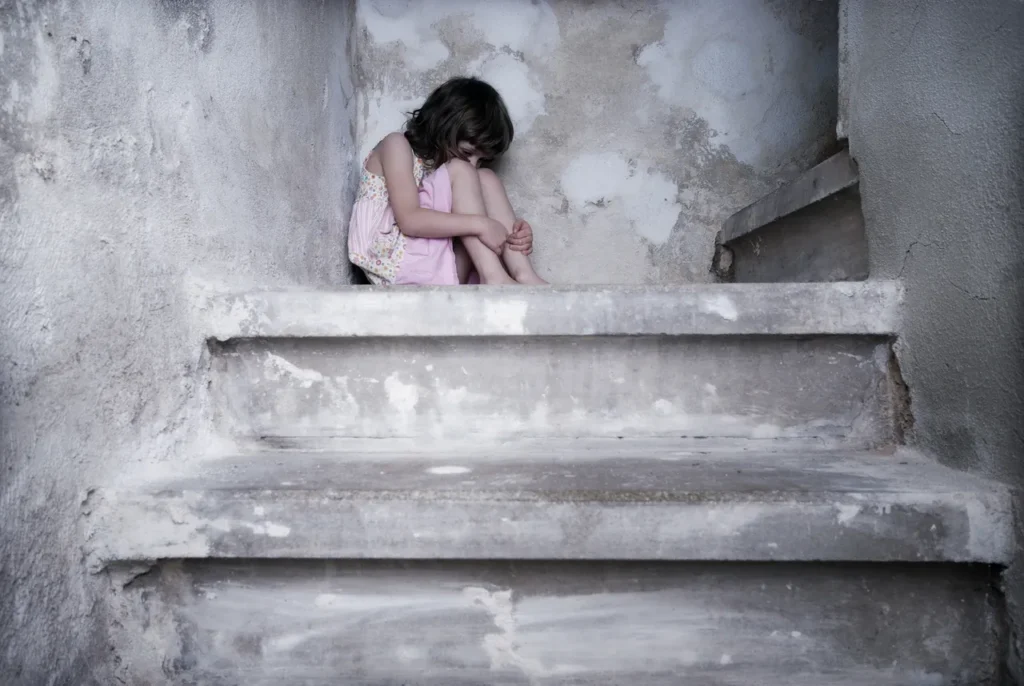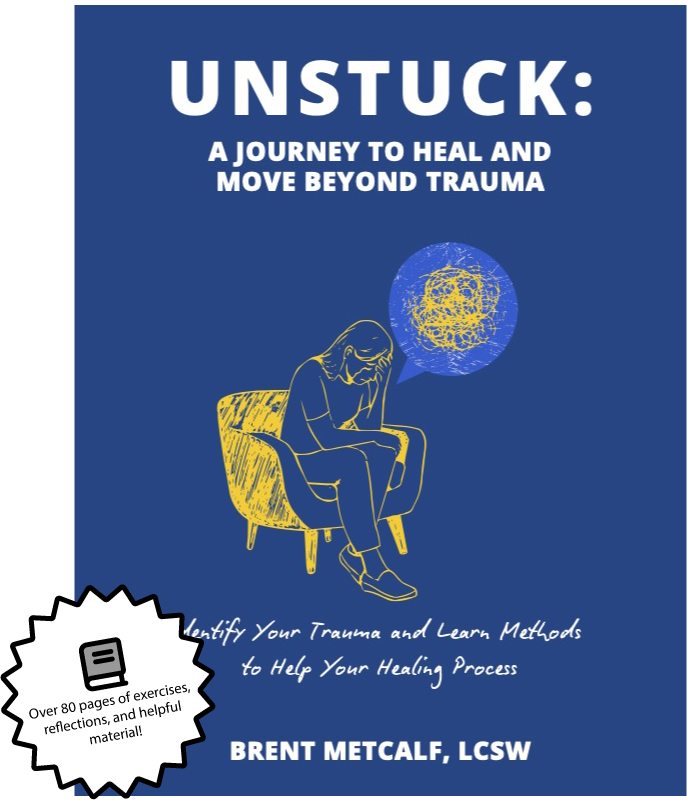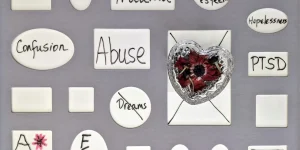Can You Get “Stuck” At The Age Trauma Happened?
Category: Trauma
As you grow up, it’s common to use child-like coping methods to get your needs met. Temper tantrums, uncontrollable tears, and impulsive behaviors are all expected. As you get older, it’s typical to “outgrow” these behaviors, replacing them with more emotionally mature responses.
But experiencing trauma at an early age can disrupt your emotional growth. You might not outgrow child-like actions — instead, they may remain as coping methods, causing problems in your relationships, work-life, and even your sense of self.
With proper treatment and support, you can begin to understand the reasons behind your emotional responses and behaviors and move toward healing.

Topic Of Discussion
How Trauma Can Make You Stuck
Traumatic events can overwhelm your body and mind, leaving a lasting mark on your mood, relationship, and sense of self long after the trauma has ended.
When trauma impairs your ability to develop full emotional maturity, this is known as arrested psychological development. Trauma can “freeze” your emotional response at the age you experienced it.
When you feel or act emotionally younger than your actual age, this is known as age regression.
Age regression means that, later in life, child-like behavior patterns can appear again when we feel unsafe or when we encounter triggers related to previous trauma — even if we’re unaware that we’ve been triggered.
When an individual is traumatized, especially early on in life, the memory of the trauma is stored both in the brain and the body. As a result, if healing does not occur, the traumatic incident can impede healthy development. Basically, depending on the severity of the trauma, your entire way of being may be formed around the traumatic incident.
This is because, on a neurobiological level, the trauma is not properly processed. It can rewire your brain in such a way that ultimately influences your thought patterns and behavioral responses as you get older.
According to 2015 research, age regression can happen in children and adults. A small-scale 2007 study notes that regression may be more common in younger adults than older adults.
When Does Trauma Related Regression Happen?
Trauma that affects your development can occur at any time during childhood. Examples of early life traumas include:
- abuse
- neglect
- accidents
- bullying
Age regression as a survival mechanism. Because it wasn’t safe for the body to process at the time, the trapped emotions unconsciously dictate your behaviors and relationships unknowingly. It doesn’t necessarily make you stuck at a certain age, but instead, you are acting out the emotional wounding that happened at that age.
Trauma can cause anyone to get “stuck” in this way. It might occur in people with mental health issues related to trauma, such as:
- post-traumatic stress disorder (PTSD)
- dissociative identity disorder
- borderline personality disorder
- depression
Signs You Are Stuck At An Early Age
The signs or symptoms that someone is emotionally stuck vary from person to person and can depend on how old you were when the trauma occurred and the nature of the trauma.
Behaviors associated with age regression could include adult temper tantrums, difficulty with impulse control, or overly clingy or dependent behavior.
Behaviors classed as regressive can also involve child-like comfort-seeking, such as:
- rocking
- pacing
- thumb-sucking
- needing a comfort toy
Still, these are not necessarily negative coping methods, and they can help many people feel comforted, safe, and loved.
Some general signs of unresolved trauma could include:
- fear-based behaviors, such as excessive anxiety or controlling behavior
- a tendency to shut down or dissociate
- people pleasing behavior
- knowing you want to do something in life, but feel like you can’t get there
- feeling easily emotionally overwhelmed
- difficulty maintaining close relationships
- unstable interpersonal relationships
Types of Trauma That May Get You Stuck
Most people understand trauma as tragic, violent, or catastrophic incidents, like combat trauma or natural disasters. Trauma can come from events that weren’t registered as significant at the time, but they left a mark, nonetheless.
As well as one-off events, trauma can result from repeated events, like an abusive relationship or childhood neglect. Complex trauma — the kind that arises from repeated events — often stems from childhood experiences.
Every person’s response to trauma is unique — so an event that might cause one person to regress or get “stuck” might not impact someone else in the same way, even if they lived through similar experiences.
You can have 10 people survive a small plane crash, and each person’s response to the traumatic event will be different based upon their history, genetics, and their actual experience of the traumatic event.
Trauma isn’t an event that happens. It’s how you process the event. If you receive support or help while going through a traumatic event, the trauma is less likely to stick with you.
Some common causes of unresolved trauma within clients include:
- abuse or neglect in childhood
- emotionally unavailable parents or caregivers
- bullying at school
- molestation or sexual assault
- auto accidents
- surviving natural disasters
- abusive work situations
- emotionally abusive relationships
How to Get Unstuck
With proper help from a licensed therapist, many people can integrate their traumatic experiences and become “unstuck.”
Becoming unstuck will mean different things to different people. For many, it may mean developing more mature emotional responses and relying less on unhelpful, child-like coping methods.
For example, if your trauma has resulted in adult temper tantrums to cope with conflict, becoming unstuck could mean you’re able to turn to more adaptive methods, such as:
- deep breathing
- self-compassion
- conflict resolution strategies
According to the American Psychological Association (APA), specific therapies that can be especially effective for helping you heal from trauma, including:
- cognitive processing therapy (CPT)
- prolonged exposure (PE) therapy
- cognitive behavioral therapy (CBT)
- Brainspotting Therapy (BSP)
- Eye Movement Desensitization and Reprocessing (EMDR) therapy
- narrative exposure therapy
- somatic therapies
- mindfulness-based therapies
If you think you’re emotionally stuck in your trauma, you might find relief by talking with a therapist or other mental health professional. Consider scheduling an appointment with Tri-Star Counseling. We offer person-centered therapy approaches in order to help you along your healing journey. It would be a privilege to work with you.
Identify Your Trauma Learn Methods to Help Heal Start Your Healing Journey Today!
The UNSTUCK workbook is designed to help you move beyond trauma by answering key questions like, Can you get stuck at the age your trauma happened? Through guided exercises, you’ll explore different types of trauma and break free from patterns holding you back. Take the next step in your healing journey today!



